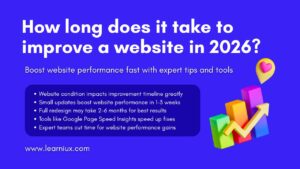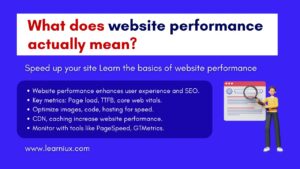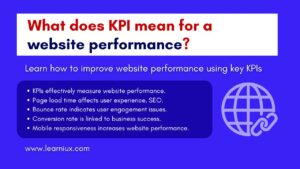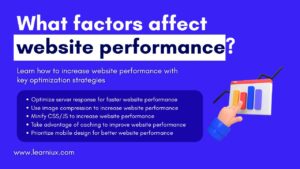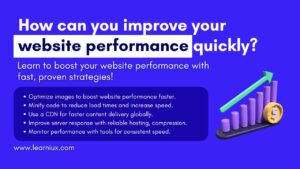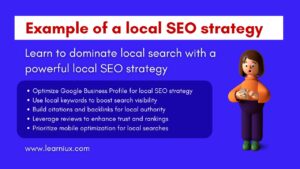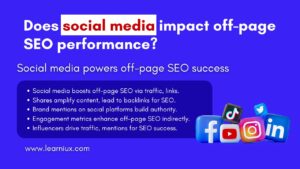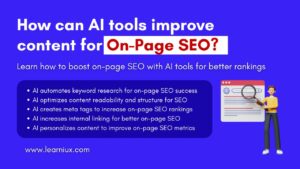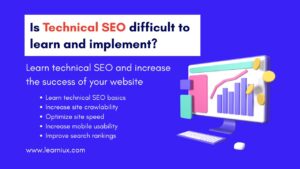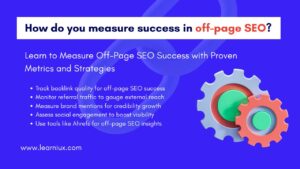In the ever-evolving world of digital marketing, achieving high visibility on search engines is a priority for businesses and content creators alike. SEO optimization, or search engine optimization, involves strategies and tools designed to improve a website’s ranking on search engine results pages (SERPs). With countless tools available, choosing the one that works best for SEO optimization can be daunting. This article provides an in-depth exploration of the top tools for SEO optimization, their features, benefits, drawbacks, and practical guidance to help you select the right one for your needs. Whether you’re a beginner or a seasoned marketer, understanding these tools will empower you to enhance your SEO optimization efforts effectively.
Understanding SEO Optimization
SEO optimization is the process of improving the content, structure, and technical components of a website so that it can rank higher on search engines like Google, Bing, or Yahoo. It includes keyword research, on-page and off-page optimization, technical audits, and performance tracking. Tools for SEO optimization make these tasks easier by providing data-driven insights, automating iterative processes, and making actionable recommendations. The right tool can save time, improve accuracy, and increase your site’s visibility, making it essential to choose one that aligns with your goals.
SEO optimization tools vary in scope and functionality. Some focus on specific areas, such as keyword research or backlink analysis, while others offer a comprehensive suite of tools for all aspects of SEO optimization. This article evaluates the most effective tools, comparing their features to help determine which one works best for SEO optimization based on usability, scalability, and cost-effectiveness.
SEMrush for SEO Optimization
SEMrush is a powerhouse in the field of SEO optimization, trusted by over 10 million marketers worldwide. This all-in-one platform offers tools for keyword research, competitor analysis, site audits, content optimization, and more. Its versatility makes it a top choice for businesses looking to enhance their SEO optimization strategies.
One of SEMrush’s standout features is its Keyword Magic tool, which helps identify high-potential keywords for SEO optimization. Users can explore keyword variations, search volume, and difficulty scores to create targeted campaigns. The Domain Overview tool provides insights into a website’s organic search performance, including traffic trends and top-ranking keywords. Additionally, SEMrush’s Site Audit feature scans for technical issues like broken links or slow page speed, which are crucial for SEO optimization.
For advanced users, SEMrush offers an AI SEO Toolkit, which enables tracking of brand mentions on an AI platform, a growing requirement in modern SEO optimization. The platform also supports backlink analysis, which helps users identify link-building opportunities to strengthen their site’s authority. With a library of tutorials and a user-friendly interface, SEMrush caters to both beginners and experts in SEO optimization.
SEMrush’s extensive features can be overwhelming for new users, and its price, which starts at $139.95 per month for the Pro plan, can be a barrier for small businesses. Despite this, its extensive data and regular updates make it a leading tool for SEO optimization, especially for those looking for an all-in-one solution.
Ahrefs for SEO Optimization
Ahrefs is another industry favorite tool known for its robust backlink analysis and competitor research capabilities in SEO optimization. With a database of over 12 trillion links, Ahrefs excels at uncovering backlink profiles, making it invaluable for off-page SEO optimization strategies.
The Site Explorer tool is the cornerstone of Ahrefs, allowing users to analyze competitors’ websites to gain insight into their best-performing pages, keywords, and backlinks. This data is crucial for creating SEO optimization strategies that outperform competitors. Ahrefs’ Keyword Explorer provides detailed metrics including search volume, keyword difficulty, and click-through rate, which helps users prioritize terms for SEO optimization.
Ahrefs also offers content gap analysis, which identifies keywords that competitors rank for but your site doesn’t, enabling targeted content creation for SEO optimization. Its rank tracker tracks keyword performance over time, though some users note that it’s less accurate than competitors. The platform’s clean interface and educational resources, such as Ahrefs Academy, make it easy to use, but its pricing starts at $108 per month, which may be a deterrent for budget-conscious users.
While Ahrefs is a major competitor for SEO optimization, its focus on backlinks and competitor analysis may not appeal to those who prioritize content optimization. Still, its depth and accuracy make it a great tool for SEO optimization professionals who aim to dominate the SERPs.
SE Ranking for SEO Optimization
SE Ranking is a cost-effective option for SEO optimization, offering a set of tools tailored for small to medium-sized businesses and agencies. Its affordability and intuitive design make it a strong contender for those new to SEO optimization or those working on a budget.
Key features include keyword rank tracking, website audits, and backlink monitoring, which are essential for effective SEO optimization. SE Ranking’s keyword research tool provides insights into search volume, competition, and trends, helping users choose optimal keywords. The platform’s AI Overview Tracker is especially useful for monitoring AI-driven search results, a growing component in SEO optimization.
SE Ranking’s reporting tools are highly customizable, allowing users to create white-label reports for clients, a boon for agencies focused on SEO optimization. Its competitor analysis feature allows users to benchmark their performance against competitors, identifying gaps and opportunities. Pricing is flexible, with plans starting at an affordable entry level, making it accessible to startups.
Disadvantages include limited support and less advanced integrations compared to premium tools. However, for those looking for a user-friendly, budget-friendly tool for SEO optimization, SE Ranking offers excellent value.
Surfer for SEO Optimization
Surfer is a specialized tool designed for content-centric SEO optimization. It analyzes top-ranking pages to provide data-driven recommendations for improving content structure, keyword usage, and readability. This makes Surfer ideal for content creators and marketers who aim to optimize on-page elements for SEO optimization.
The highlight of Surfer is the content editor tool, which provides real-time suggestions for keyword density, titles, and word count based on SERP analysis. This ensures that content aligns with search engine expectations for SEO optimization. Surfer also integrates seamlessly with Google Docs and WordPress, simplifying the content creation process.
Surfer’s AI-powered writing tools can create optimized drafts, saving time for users who are focused on SEO optimization. Its keyword research tool identifies related terms and clusters, helping you create a comprehensive content strategy. Trusted by brands like Lenovo, Surfer starts at $99 per month, which can be a bit steep for beginners.
Surfer excels at content optimization, but it lacks the features found in tools like SEMrush or Ahrefs. Users who need technical SEO or backlink analysis may need additional tools. Still, for content-driven SEO optimization, Surfer is a great option.
Other Notable Tools for SEO Optimization
A number of other tools are notable for their unique contributions to SEO optimization. Each serves a specific need, providing flexibility for different use cases.
ClearScope excels at keyword discovery and content scoring in SEO optimization. It analyzes top-performing content to suggest keywords and improve readability, with features like content decay tracking to keep pages relevant. Pricing starts at $189 per month, which may be high for small teams, but its accuracy makes it valuable for content marketers.
Mangools is a budget-friendly suite for SEO optimization, offering tools like KWFinder for keyword research and SERPChecker for rank analysis. Starting at $49 per month, it’s ideal for freelancers or small businesses. Its simplicity is a strength, although it lacks the depth of premium tools.
Screaming Frog is a desktop-based crawler that is perfect for technical SEO optimization. It scans websites for issues like broken links, duplicate content, and missing meta tags. The free version is robust, priced at $259 per year, making it available for technical audits in SEO optimization.
Google Search Console, a free tool, is indispensable for monitoring site performance in SEO optimization. It provides data on search queries, indexing issues, and mobile usability, making it a must-have for beginners and experts alike.
Comparing Tools for SEO Optimization
To determine which tool works best for SEO optimization, a side-by-side comparison highlights their strengths and weaknesses:
This comparison highlights the variety of tools for SEO optimization, each excelling in a specific area. Your choice depends on whether you prefer content, technical audits, backlinks, or a comprehensive approach.
| Tool | Key Features for SEO optimization | Pricing (Starting) | Pros | Cons |
|---|---|---|---|---|
| Semrush | Keyword research, competitor analysis, AI tracking | $139.95/month | Comprehensive, tutorials | Overwhelming for beginners |
| Ahrefs | Backlink analysis, site explorer | $108/month | Accurate data, updates | Expensive, rank tracking accuracy |
| SE Ranking | Keyword tracking, audits, AI overview | Affordable entry | User-friendly, robust features | Limited support |
| Surfer | Content optimization, AI writing | $99/month | Integrations, trusted by brands | Requires SEO knowledge |
| Clearscope | Keyword discovery, content scoring | $189/month | High-quality recommendations | High pricing |
| Mangools | Keyword research, SERP analysis | $49/month | Affordable, simple interface | Limited advanced features |
| Screaming Frog | Site crawling, technical audits | Free/$259/year | Detailed audits, free version | Desktop-based, learning curve |
Factors to Consider When Choosing a Tool for SEO Optimization
There are several factors to consider when choosing the best tool for SEO optimization:
- Budget: Free tools like Google Search Console are great for beginners, while premium options like SEMrush are better suited for larger teams. Consider the long-term cost and ROI of SEO optimization.
- Objectives: If your focus is on content, Surfer or ClearScope may be ideal. For backlinks, Ahrefs is great. Define your SEO optimization preferences to narrow down your options.
- Ease of Use: Tools like SE Ranking and Mongools offer intuitive interfaces, while SEMrush and Ahrefs require a learning curve but offer extensive resources.
- Scalability: For growing businesses, tools with advanced features like AI tracking or agency reporting (e.g. SEMrush, SE Ranking) support long-term SEO optimization.
- Team size: Solo marketers may prefer affordable, simple tools like Mongoose, while agencies benefit from comprehensive platforms like SEMrush.
It’s important to test tools through free trials or demos. Many platforms offer limited free versions or money-back guarantees, allowing you to properly evaluate them for your SEO optimization needs. Reading user reviews and case studies can also provide insight into real-world performance.
Practical Tips for Making the Most of SEO Optimization Tools
Once you’ve chosen a tool for SEO optimization, follow these tips to get the most out of it:
- Set clear goals: Define whether you’re focusing on keyword rankings, backlinks, or technical improvements. This ensures that you effectively utilize the tool’s features for SEO optimization.
- Leverage tutorials: Most tools offer guides or academies (e.g. Ahrefs Academy, Semrush webinars) to help you master their features for SEO optimization.
- Monitor data regularly: Use dashboards and reports to track progress. Tools like SE Ranking and Semrush provide automated reports to make this easy.
- Combine tools: For comprehensive SEO optimization, combine tools like Surfer for content with Screaming Frog for technical audits.
- Stay updated: Search engine algorithms evolve, so use tools with regular updates to match SEO optimization trends (e.g. Ahrefs, Semrush).
Common Challenges in SEO Optimization and How Tools Help
SEO optimization comes with challenges like algorithm changes, competitor analysis, and time constraints. Tools effectively address these:
- Algorithm Updates: Tools like SEMrush and SE Ranking track algorithm changes and AI-driven search trends, helping you optimize your SEO optimization strategies.
- Competitor Insights: Ahrefs and SEMrush provide detailed competitor data, revealing strategies to outperform competitors in SEO optimization.
- Time Efficiency: Automation in tools like Surfer and Screaming Frog reduces manual work, allowing you to focus on strategy for SEO optimization.
- Data overload: The user-friendly dashboards in SE Ranking and Mongoose make data easy to interpret, making SEO optimization easier for beginners.
By addressing these challenges, the tools streamline the process and increase the effectiveness of your SEO optimization efforts.
Conclusion
Choosing the right tool for SEO optimization depends on your specific needs, budget, and skill level. SEMrush and Ahrefs offer comprehensive solutions for advanced users, while Surfer excels at content optimization. SE Ranking and Mongoose provide affordable, user-friendly options for small teams, and free tools like Google Search Console are perfect for beginners.
To find the best fit, experiment with tests, define your SEO optimization goals, and consider scalability. By using the right tool, you can increase your website’s visibility, drive traffic, and achieve long-term success with SEO optimization. Start exploring these tools today to grow your digital presence.
FAQs
What is SEO optimization and why do I need a tool for it?
SEO optimization is the process of improving a website’s visibility on search engines to attract more organic traffic. It includes tasks such as keyword research, content optimization, and technical improvements. Tools for SEO optimization make these tasks easier by providing data-driven insights and automation. They help identify high-potential keywords, analyze competitors, and find site issues such as broken links. Without a tool, these tasks can be time-consuming and less accurate. Tools like SEMrush or Ahrefs simplify the process, save time, and improve results. They also keep you updated on algorithm changes, which are important for effective SEO optimization. Beginners can start with free tools like Google Search Console to learn the basics. Advanced tools offer scalability for larger campaigns, making them essential for successful SEO optimization.
Which tool is best for beginners in SEO optimization?
For beginners, choosing a user-friendly and affordable tool is key to mastering SEO optimization. SE Ranking and Mongools are excellent choices due to their intuitive interfaces and budget-friendly pricing. SE Ranking offers keyword tracking and site audits, which help new users understand the basics of SEO optimization. Mongools’ KWFinder simplifies keyword research with clear metrics like search volume and difficulty. Both tools provide tutorials to guide beginners through the SEO optimization process. Google Search Console, a free tool, is also ideal for learning how search engines view your site. Unlike complex platforms like SEMrush, these tools avoid overwhelming beginners with too many features. They focus on core SEO optimization tasks, building a strong foundation. As skills grow, users can explore advanced tools for deeper SEO optimization strategies.
How does SEMrush help with SEO optimization?
SEMrush is a comprehensive platform that enhances SEO optimization through a wide range of features. Its Keyword Magic tool identifies high-potential keywords, provides data on search volume and competition. The Site Audit feature scans for technical issues like slow loading times, which are crucial for SEO optimization. SEMrush’s Domain Overview tracks organic search performance and competitor strategies, giving you insights to refine your approach. Its AI SEO Toolkit monitors brand presence in AI-driven search results, a growing aspect of SEO optimization. Backlink analysis helps build authority through quality links. Tutorials and reports make it easy, although its $139.95/month price tag may challenge those on a tight budget. SEMrush is ideal for businesses looking for an all-in-one solution for SEO optimization, providing robust data and actionable recommendations.
Is Ahrefs worth the cost for SEO optimization?
Ahrefs is a premium tool for SEO optimization, particularly valuable for its backlink analysis and competitor research capabilities. Priced at $108/month, it gives users access to a large link database, which helps users find competitor backlink strategies. The Site Explorer tool analyzes high-performing pages and keywords, guiding SEO optimization efforts. Its Keyword Explorer provides detailed metrics to prioritize terms for ranking. Although expensive, Ahrefs’ accuracy and regular updates justify the cost for professionals focused on off-page SEO optimization. However, its rank tracking may be less accurate than competitors. The platform’s educational resources, such as Ahrefs Academy, support users in adding value. For those who prioritize backlinks and competitor insights in SEO optimization, Ahrefs is worth the investment, although budget-conscious users may prefer cheaper options.
Can Surfer improve my content for SEO optimization?
Surfer is a specialized tool designed to enhance content for SEO optimization by analyzing top-ranking pages. Its content editor provides real-time suggestions for keyword density, headings, and word count to ensure it meets SERP standards. This ensures that content is optimized for SEO optimization without the guesswork. Surfer’s AI writing tools produce optimized drafts, saving content creators time. It integrates with Google Docs and WordPress, streamlining the workflow for SEO optimization. The tool also identifies relevant keywords and clusters for broader content strategies. Priced at $99/month, it’s ideal for content-focused SEO optimization but lacks technical or backlink features. Trusted by brands like Lenovo, Surfer helps create high-quality, search-friendly content. It’s best for users who prioritize on-page SEO optimization.
What makes SE Ranking a good choice for SEO optimization?
SE Ranking is a cost-effective and user-friendly tool for SEO optimization, perfect for small businesses and agencies. Its keyword tracking monitors rankings in search engines, providing insights for SEO optimization strategies. The website audit tool detects technical issues such as broken links, increasing site performance. SE Ranking’s AI overview tracker is ideal for agencies with customizable reports that are a key component in modern SEO optimization. Its competitor analysis feature identifies gaps to use for better SEO optimization. The affordable price makes it easy to use, although it lacks some of the advanced integrations of premium tools. With a clean interface and robust features, SE Ranking balances price and functionality for effective SEO optimization.
Are free tools for SEO optimization effective?
Free tools like Google Search Console and Ubersuggest for SEO optimization can be very effective for SEO optimization, especially for beginners or those on a limited budget. Google Search Console provides data on search queries, indexing issues, and mobile usability, which is fundamental to SEO optimization. Ubersuggest offers basic keyword research and site audit features, which help users get started with optimization without spending a fortune. These tools don’t have the depth of paid platforms like SEMrush or Ahrefs, but are more than enough for smaller sites or those learning the basics of SEO optimization. They help identify critical issues and track performance without a financial commitment. However, free tools may not scale for complex campaigns or provide advanced competitor analysis. Combining them with affordable tools like Mongoose can help boost your SEO optimization efforts. Free tools are a great place to start building your SEO optimization skills.
How do I choose the right tool for SEO optimization?
Choosing the right tool for SEO optimization depends on your goals, budget, and expertise. Determine whether you need content optimization (Surfer), backlink analysis (Ahrefs), or a comprehensive suite (SEMrush). Budget-conscious users can opt for SE Ranking or Mongoose, while free tools like Google Search Console are more beginner-friendly. Evaluate usability, as complex tools can be overwhelming for beginners. Consider scalability for future growth in SEO optimization needs. Free trials or demos help you test tools for compatibility with your workflow. Reading reviews and case studies provides real-world insight into SEO optimization performance. Make sure the tool aligns with specific tasks, such as technical audits or keyword research, to maximize its impact. A customized approach ensures the best fit for your SEO optimization strategy.
Can I use multiple tools for SEO optimization?
Using multiple tools for SEO optimization is a smart strategy to cover all aspects of your campaign. For example, Surfer excels at content optimization, while Screaming Frog focuses on technical audits for SEO optimization. Combining Ahrefs for backlink analysis with SEMrush for keyword research creates a robust approach. Free tools like Google Search Console can complement paid platforms by monitoring site performance. Each tool addresses specific SEO optimization needs, increasing overall effectiveness. However, managing multiple tools requires time and coordination to avoid data overlap. Make sure tools like Surfer integrate well to streamline your workflow. This approach is best suited for advanced users or agencies handling complex SEO optimization projects. Start with one tool and add other tools as your needs grow.
What are the limitations of SEO optimization tools?
SEO optimization tools, while powerful, have limitations that users should understand. No tool guarantees top rankings, as SEO optimization depends on many factors, such as content quality and algorithm changes. Tools like Ahrefs can lack accuracy in rank tracking, while Surfer focuses solely on content, missing technical features. Free tools like Google Search Console offer limited data compared to paid platforms. The high cost of premium tools (e.g., SEMrush $139.95/month) can put a strain on budgets. Some tools have steep learning curves, which can take time to master for effective SEO optimization. Limited support in affordable tools like SE Ranking can hinder troubleshooting. Users should combine the tools with strategy and manual efforts for optimal SEO optimization results. Understanding these limitations helps set realistic expectations.






















